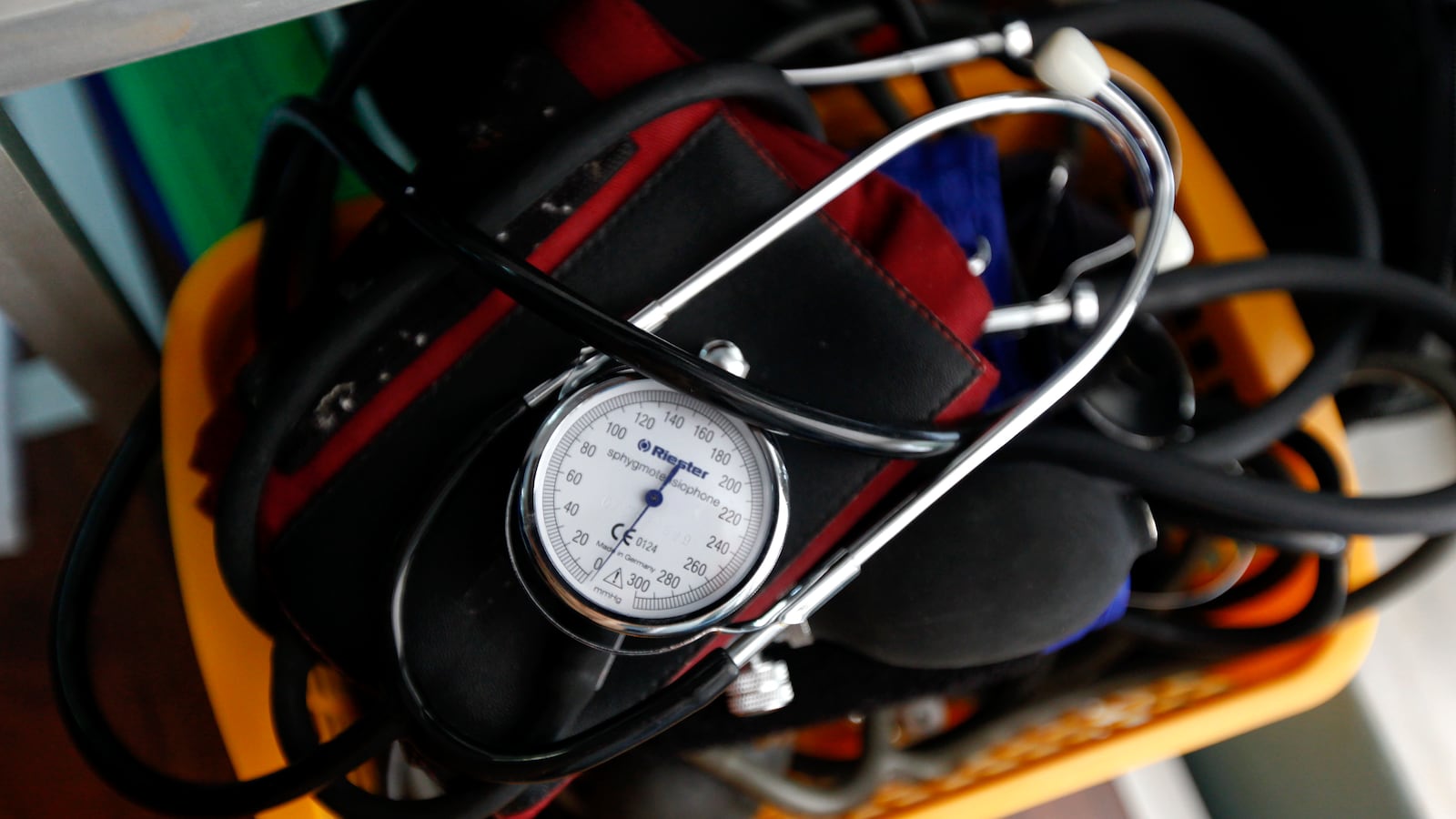A large, groundbreaking new study found that many minor heart procedures may be unnecessary and could be no better than pills and lifestyle improvements, according to a federally funded study released Saturday.
The study, entitled 'International Study of Comparative Health Effectiveness With Medical and Invasive Approaches,' found that people with stable heart conditions may have less chest pain if they get an invasive procedure to improve blood blow, but it won't cut their risk of having a heart attack.
Researchers concluded these procedures—which in most cases is a stent, or a tiny mesh tube that props up blood vessels after the arteries are cleared—should be used more sparingly in heart disease patients. About 500,000 heart stent procedures are performed every year in the United States alone, but the study indicated only a fifth of those are for people with stable heart disease, those defined as having clogged arteries that are sometimes accompanied by chest pain when they exert themselves.
Doctors “have very strong emotional beliefs, and they’ve been practicing in a way that sends these patients straight to the cath lab for generations, and that’s not going to change overnight,” John Spertus, a cardiologist at Saint Luke’s Mid America Heart Institute and one of the study leaders, told the Washington Post. “I think it’s incredibly important in this era where we’re trying to improve the value of health care, improve patients’ outcomes at a lower cost."
The $100 million trial was presented Saturday at the American Heart Association, is the strongest evidence yet that costly and risky heart procedures are unnecessary or premature for certain patients. The study is the latest conclusion in a long and contentious medical argument on how to treat artery blockages and patients with chronic heart disease.
“This study clearly goes against what has been the common wisdom for the last 30, 40 years,” Dr. Glenn Levine, a Baylor College of Medicine cardiologist, told the AP.
According to the study, about 17 million Americans have clogged arteries affecting the the blood supply to their heart and causing periodic chest pain.
While over-the-counter drugs, low-cholesterol diet, and low blood pressure medication are known to reduce the risk of a heart attack for patients with various heart conditions, many doctors still often recommend a surgical procedure to improve blood flow.
In addition to stents, doctors often perform a bypass—or open-heart surgery to detour blockages—to reduce pain and improve circulation.
In 2007, another big study found that these invasive procedures are no more effective than medicines for preventing heart attacks and deaths in non-emergency situations. The results triggered widespread criticism and doubt, prompting the new study presented Saturday to settle the debate.
The new study is about twice as large as the original, spanned 37 countries, and included about 5,000 participants—many people with severe heart diseases.
Half of the participants in the four-year study received only heart medication and lifestyle counseling, while the other half received stents or bypass surgery in addition to the heart medication.
The study concluded that while people who received the invasive strategy were at a slightly lower risk of cardiac outcomes, there was not a significant difference between the two groups.
The study will look to follow all the patients for another five years for an even more accurate set of results.







